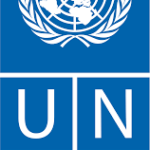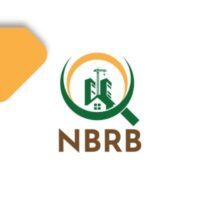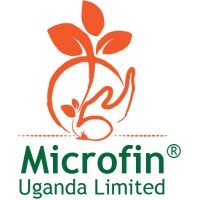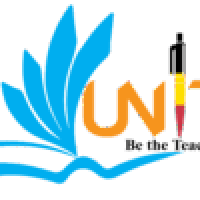Provision of advice and technical support:
Advise the state leadership and high-level officials in relevant institutions on strategic approaches to issues related to rule of law;
Advise the state leadership, high-level officials in relevant institutions and their staff on policies, strategies, systems, methods of management and training needs;
Liaise with the Chief Technical Advisor and other project partners to provide overall technical guidance on matters of government policy on rule of law;
Put in place policies, strategies and systems for effective rule of law and access to justice in line with democratic principles;
Collect and issue updates on activities in the rule of law area including changes in legislation and national or regional strategies or action plans;
Support relevant stakeholders in the review and potential reform of customary laws (Dinka Bor laws).
Capacity building of state level stakeholders:
Assist state institutions and communities to develop and implement policies, long term strategies, systems and action plans for the establishment of effective legal and justice services and monitoring of human rights trends;
Support stakeholders in improving and establishing sustainable mechanisms for access to justice including statutory, traditional conflict resolution mechanisms, human rights and transitional justice mechanisms, as well as in strengthening an integrated rule of law chain, including referral mechanisms;
Support the development and practice of alternative and internationally acceptable methods of increasing access to justice especially for vulnerable groups and for resolving communal disputes;
Identify and support initiatives for providing legal assistance such as legal aid centres and community-based paralegals/mobilisers to advise victims, detainees, survivors of gender-based violence, and their families;
Develop and implement capacity building strategies to meet the training needs of the justice and rule of law actors in the project area and strengthen sub-state governance;
Support Civil Society and community groups to develop skills to actively engage in community policing and community security, including planning and implementing joint activities;
Promote skills for mainstreaming gender, respect for human rights and support to vulnerable groups into reform priorities of and service delivery by rule of law institutions;
Coordinate and manage implementation of capacity building support to rule of law institutions;
Identify and support initiatives for addressing the concerns of vulnerable groups such as women and children and provide basic legal aid services;
Organize and/or conduct human rights and rule of law trainings as well as civic education related to the project;
Link capacity-building activities with infrastructure development conducted under the project to maximize their utility.
Support to Program planning and implementation:
Provide substantial inputs to planning, implementation and monitoring of the RSRTF project for central-southern Jonglei and the Greater Pibor Administrative Area (GPAA, including drafting of relevant project documents including memos, briefs, talking points, meeting debriefs, minutes;
Develop detailed work plans regarding the ‘stabilization’ pillar of the project, e.g., rule of law initiatives and accountability mechanisms, and provide inputs to develop the consolidated project work plans;
Support development of ToRs for Small Grants, oversee the work of beneficiaries of Small Grants Facility, and ensure quality of outputs in keeping with grants applications;
Implement project work plans and supervise project activities as and when required;
Liaise with partners conducting research and on-going M&E activities to continuously integrate new insights into the project;
Submit quarterly analytical reports and provide inputs into other reporting requirements to the donor and M&E activities in the ‘stabilization’ pillar to the Program Manager, and Project Coordinator and further prospects as decided by the project;
Support the project management to develop necessary documentation (concept notes, briefs, and fundraising notes) to operationalize and steer programmatic initiatives and activities.
Facilitation of the strategic partnerships:
Develop strong working relationships with all local stakeholders and between the state institutions and the justice actors, other relevant government agencies, CSOs and international partners;
Liaise with partners and facilitate communication on Project-related activities including organizing joint thematic learning and networking events;
Develop and maintain close working relationships with local civil society and community groups to facilitate project implementation, as well as identify issues, risks, priorities, and opportunities that support effective project implementation;
Collaborate closely and work in an integrated manner with RoLAS and other UNMISS sections; liaise with and establish strong working relationships with other UN agencies and international organizations to promote a coordinated approach to the development and implementation of security, law enforcement and prisons programs.
Knowledge management and communication of results:
Collect project monitoring data on a regular basis and issue updates on activities in the rule of law area including changes in legislation and national or regional strategies or action plans;
Monitor and report on justice, human rights and transitional justice issues locally and identify emerging trends using program mapping and other available data;
Monitor and report on key interventions of the project on rule of law particularly for vulnerable groups such as IDPs, PWDs, children, the elderly and survivors of SGBV;
Communicate results based on corporate principles of gender-responsive communications and non-discriminatory language.
The Rule of Law Officer will be part of the Access to Justice team under the administrative supervision of the Chief Technical Advisor and will work closely with the Security/Law Enforcement Specialist in Bor.
Core Competencies
Achieve Results: LEVEL 1: Plans and monitors own work, pays attention to details, delivers quality work by deadline.
Think Innovatively: LEVEL 1: Open to creative ideas/known risks, is pragmatic problem solver, makes improvements.
Learn Continuously: LEVEL 1: Open minded and curious, shares knowledge, learns from mistakes, asks for feedback.
Adapt with Agility: LEVEL 1: Adapts to change, constructively handles ambiguity/uncertainty, is flexible.
Act with Determination: LEVEL 1: Shows drive and motivation, able to deliver calmly in face of adversity, confident.
Engage and Partner: LEVEL 1: Demonstrates compassion/understanding towards others, forms positive relationships.
Enable Diversity and Inclusion: LEVEL 1: Appreciate/respect differences, aware of unconscious bias, confront discrimination.
Functional/Technical competencies
Business Direction &Strategy
Strategic Thinking: Ability to develop effective strategies and prioritized plans in line with UNDP’s objectives, based on the systemic analysis of challenges, potential risks and opportunities; linking the vision to reality on the ground, and creating tangible solutions; Ability to leverage learning from a variety of sources to anticipate and respond to future trends; to demonstrate foresight in order to model what future developments and possible ways forward look like for UNDP.
Effective Decision Making: Ability to take decisions in a time and efficient manner in line with one’s authority, area of expertise and resources.
Business Management
Result Based Management: Ability to manage programmes and projects with a focus at improved performance and demonstrable results.
Project Management: Ability to plan, organize, priorities and control resources, procedures and protocols to achieve specific goals.
Communication: Ability to communicate in a clear, concise, and unambiguous manner both through written and verbal communication; to tailor messages and choose communication methods depending on the audience; Ability to manage communications internally and externally, through media, social media, and other appropriate channels.
Required Skills and Experience
Advanced University Degree (Master’s or equivalent) in either law, human rights, or international relations.
First-level University Degree (Bachelor’s) in a relevant field in combination with an additional two years of qualifying experience will be given due consideration in lieu of the advanced university degree.
At least 2 years of relevant experience at the national or international levels, in access to justice and security, human rights monitoring, governance and peace building.
Required skills:
High-level planning, facilitation, communication and capacity development skills with a demonstrated ability to transfer knowledge and skills in a complex institutional environment;
Experience of working in conflict/post-conflict settings;
Demonstrated experience in coordinating with and reporting on the work of diverse teams and financial resources at international level;
Excellent oral and written skills; excellent drafting, formulation, reporting skills;
Accuracy and professionalism in document production and editing;
Excellent interpersonal skills; culturally and socially sensitive; ability to work inclusively and collaboratively with a range of partners, including grassroots community members, religious and youth organizations, and authorities at different levels; familiarity with tools and approaches of communications for development;
Ability to work and adapt professionally and effectively in a challenging environment; ability to work effectively in a multicultural team of international and national personnel;
Solid overall computer literacy, including proficiency in various MS Office applications (Excel, Word, etc.) and email/internet; familiarity with database management; and office technology equipment;
Self-motivated, ability to work with minimum supervision; ability to work with tight deadlines.
Desired skills:
Ability to provide and advocate for policy advice;
In-depth knowledge of development and justice sector issues;
Ability to clearly and articulately present concepts and strategies on a broad range of issues;
Proven knowledge of programme and financial management as well as administration of rule of programmes and services at the local level;
Concrete skills in conceptualizing strategies and justice sector and human rights interventions;
Ability to perform and adapt to complex and changing political, social, and economic contexts;
Promotes a knowledge-sharing culture in the office;
Ability to lead formulation, implementation, monitoring and evaluation of development projects and programs, particularly in the justice sector;
Focuses on impact and results for the client and responds positively to feedback;
Demonstrates strong oral and written communication skills;
Fosters a strong team approach to optimize results delivery;
Builds strong relationships with clients and external actors;
Demonstrates openness to change and ability to manage complexities;
Communicates effectively with staff at all levels of the organization.
Language:
Fluency in written and spoken English is required.
Knowledge of Arabic and/or Dinka would be an asset.












